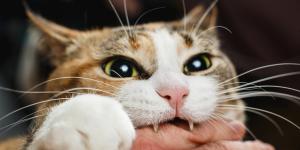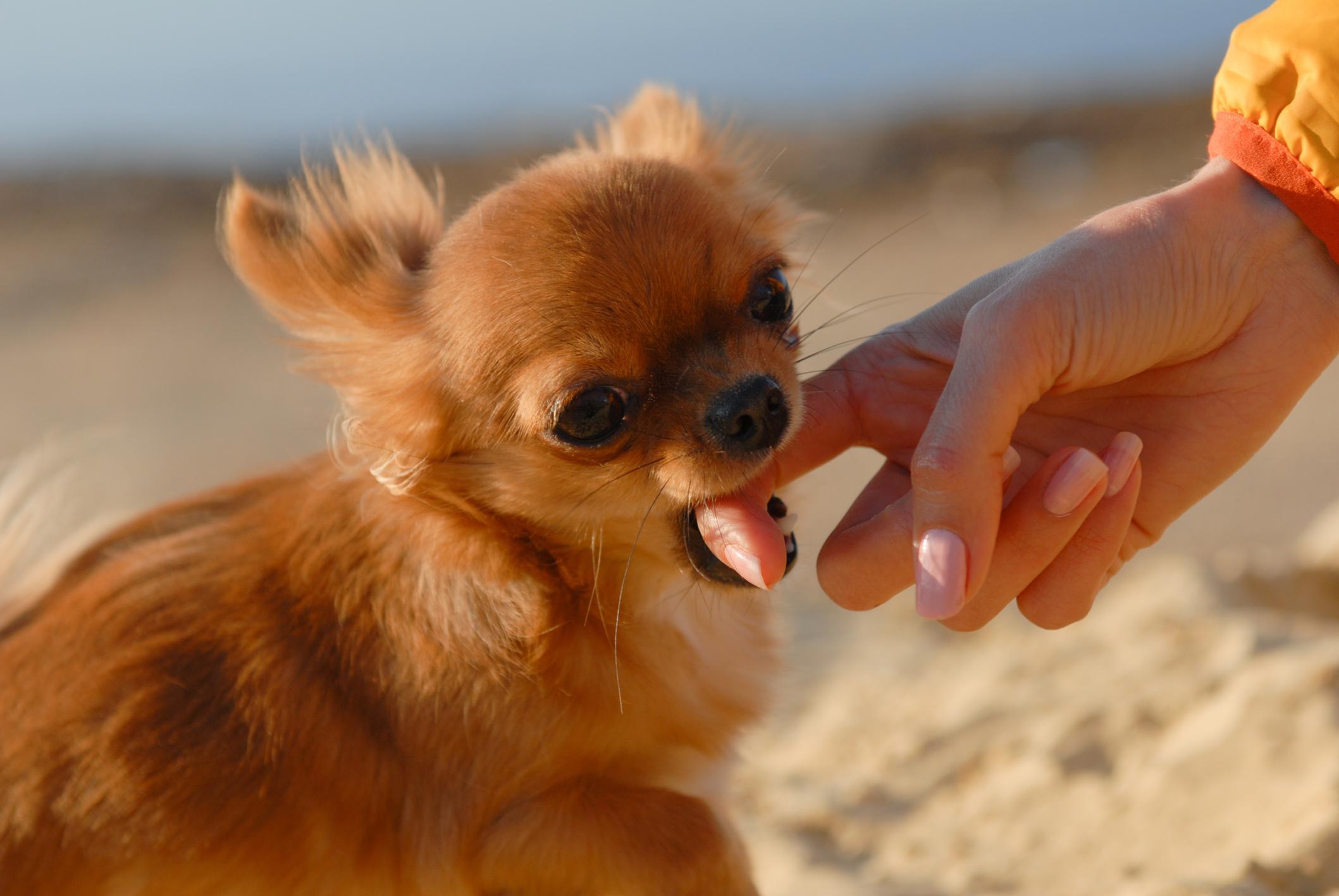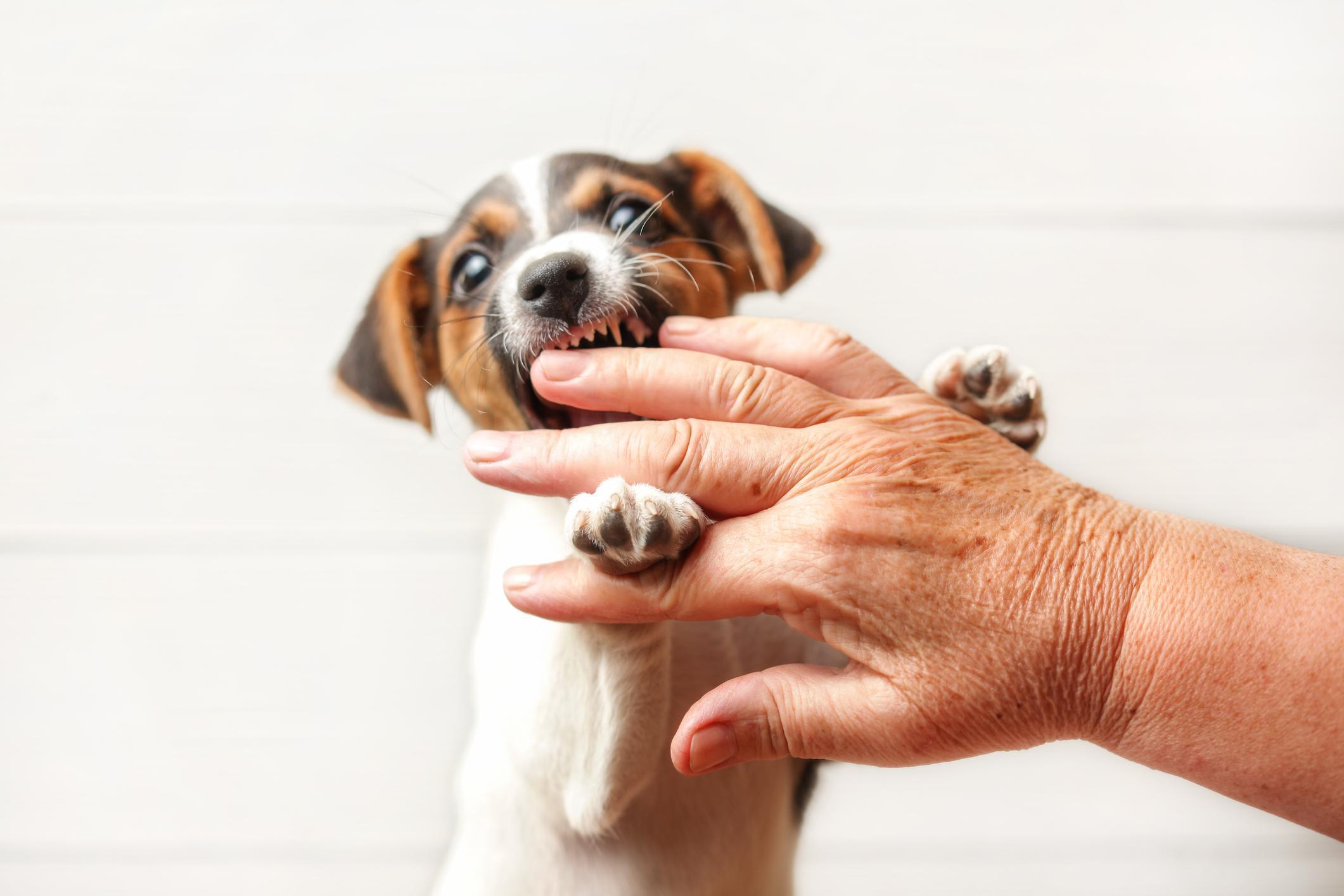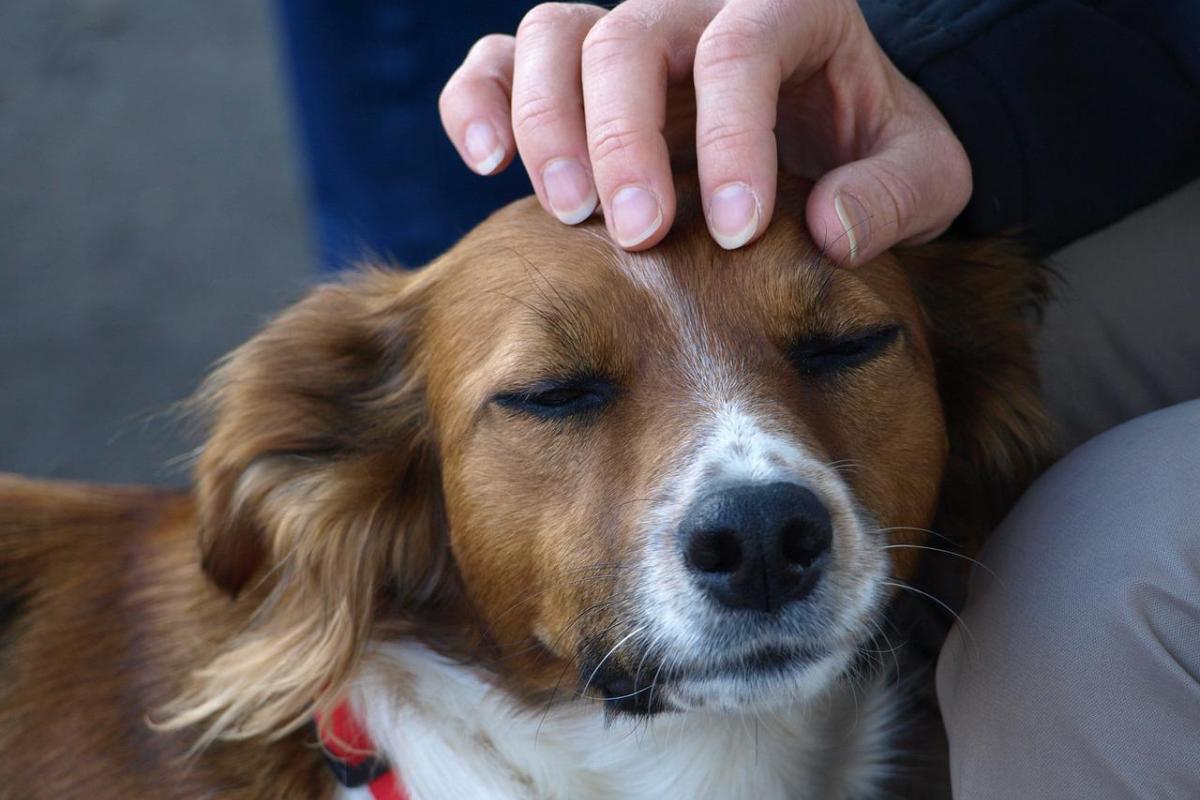Why Does My Dog Bite Me When I Pet Him?



See files for Dogs
Our dogs use their mouths to interact with their environment and communicate with those within it. While they use vocalizations to communicate their emotions, wants and intentions, they can also use it in other ways. If a dog bites us when we pet them, it is easy to think they are simply aggressive. Often this occurs because we have ignored or misunderstood other signals they have tried to communicate to us. Moreover, the context of the bite is very important. Not only are many bites not aggressive, they are often expressions of affection. We will know which is which by looking at the context, their behavior and other factors.
You may ask yourself, why does my dog bite me when I pet him? AnimalWised explains the reasons both puppies and adult dogs will bite us, as well as what to do in each case.
Why does my puppy bite me when I pet him?
Newborn puppies have not yet opened their eyes and don't even have the ability to defecate on their own. Their only task in the first few days of life is to find their mother's teat to drink milk. If a newborn puppy bites you when you pet them, it is likely because your finger got in the way of this.
Problems arise when the puppy enters their socialization period. This is one of the most important stages in any dog's life and greatly influences their behavior as an adult. Biting is an important factor during this period. The most vital period is between the ages of 4-12 weeks of age. During this time, the puppy learns behaviors and boundaries which will allow them to interact with their environment in healthy ways.
Puppies will generally bite you when you pet them more than adult dogs. They will do so for the following reasons:
Bite inhibition
As stated earlier, biting is one form of communication for dogs. When with their mother and siblings, they are still learning more complex forms of communication, so they often rely on biting to get their point across. This can be a desire to play or to be left alone. They do not want to cause harm, simple express their intentions. Bite inhibition is when the puppy bites gently enough to make their point, but not hard enough to cause harm.
If we are petting a young puppy, they will still be in the process of learning bite inhibition. They also may know how hard they can bite another dog, but have yet to learn bite inhibition when it comes to humans. It is a normal part of their developmental process.
During play
Bite inhibition is often learned through play. Puppies will play fight with each other and let each other know when it becomes too rough. The puppy who bite should then know they have crossed a boundary. When they are playing, it is very easy for a puppy to get overexcited. Their energy levels are high and they can get carried away.
When we try to pet a puppy that is in play mode, we can often catch them in a moment of overexcitement. They may not mean to cause you harm, but it is easy for them to bite you quite hard without realizing it. For this reason, it is best not to pet puppies when they are playing. Instead, we should wait for a moment of calm to show some affection. This helps encourage bite inhibition because they receive positive reinforcement when they are calm.
Dreaming
Due to the intensity of their development, it is common for puppies to sleep most of the day. In fact, it is common for puppies to sleep over 18 hours a day. During this time, the puppy often looks their most tender. It is easy to want to pet them, but when we do, the puppy may bite as a reflex. For this reason, it is best to let a sleeping dog lie and pet them when they are awake.
This is in contrast to petting a puppy to help them sleep. Petting should be a relaxing experience for the dog, so we need to ensure we transmit feelings of peacefulness. Once they fall asleep, we can still pet them, but slowly and not for much longer.

Why does my adult dog bite me when I pet him?
Body language is a vital part of dog communication and a guardian will ignore it at their peril. Certain gestures, facial expressions, body positions, tail movements and other body language signals will be used to express the dog's emotions and wants.
When a dog bites us while we are petting them, it is often because we have ignored their body language. Calming signals are forms of body language which the dog uses to try to prevent aggression. They may put their ears close to their head, hide their tail between their legs or generally adopt a passive posture. If we go over to pet them when they make these signals, they may feel they have no other choice but to bite because their other communication was ignored.
Guardians who have a happy and positive relationship with their dog shouldn't have this problem very often. However, even with a good relationship, our dog may bite us when we pet them for the following reasons:
Excitement
Although it will happen more in puppies than adult dogs, the latter may still bite if they get overexcited. This could be due to having their senses overwhelmed so they cannot control their reaction and may even temporarily forget bite inhibition. It is important for the dog's guardian to learn when it is or is not appropriate to pet their dog during episodes of excitement.
Sleep disturbance
Just as with a puppy, our dog may bite us if we pet them while they are sleeping. Whether they are disorientated from exiting a dream state or they simply do not enjoy having their sleep disturbed, we need to ensure we do not provoke a bite unnecessarily.
Poor socialization
When a puppy is young, their socialization period teaches them important behaviors and boundaries. Bite inhibition is one of the most important boundaries when living in the domestic environment. For adult dogs which had a poor or neglected socialization period when a puppy, it means their adult behavior is affected.
The extent to which the dog can or cannot be socialized as an adult will depend on the individual. While it is possible in most cases, we need to be aware some may need more help than others. Poorly socialized dogs are usually more fearful as they lack security in their environment. In some cases, this can lead to aggression.
Trauma
Even dogs that have been well socialized might turn to biting if they experience trauma. When they have a very negative experience, especially with humans, it can also generate fear. This means they may think someone petting them is trying to cause them harm and they bite out of fear. It is important to support a dog if they experience trauma and be especially reassuring.
Boredom and neglect
If we have a dog and fail to provide them with the appropriate levels of physical and mental stimulation, it is common for them to bite out of frustration. If we neglect our dog, they can respond in various ways. Some dogs will bark a lot to get our attention, but others might simply retreat into themselves. Neglecting their training and education is also a very important reason why some dogs bite.
When we neglect a dog for long periods, they may learn they cannot rely on us or trust us. In these cases, they may bite us when we go to pet them as a sign of their frustration. The bond between us is too weak for them to feel secure at our touch.
Affection
Finally, it is important to note that not all biting is inappropriate. For some dogs, giving us a little nibble or biting playfully is simply a sign of affection. When they use bite inhibition and are not aggressive, they may simply bite us to initiate play or show contentment.

What to do if my dog bites me when I pet him?
Although we do not realize it, the way we touch our dogs causes different sensations and effects:
- Caressing them with an open hand at the sides causes calmness, lowers wakefulness and reduces stress.
- Patting tends to excite them.
- Back and shoulder scratches are a display of gratification and a much-appreciated way of complimenting behavior.
Our dog will often communicate with us the way they do to other dogs. It doesn't mean they see us as a dog, but it does highlight the limitations of human/canine communication. They use very specific signs to let us know how they feel and it is essential we learn them to the best of our ability. Once we learn them, we need to pay attention and be observant of them.
We also need to know there are places where dogs generally prefer to be petted. Knowing where to pet a dog to relax them and where to avoid getting them agitated is a very practical way to prevent them trying to bite you. Each dog is also an individual with their own personal preferences. It is also very important we get to know the dog and find out where they like to be petted in the process.
The process of petting the dog should be a slow one. Whether you have adopted a puppy or an adult dog, it is important we let them set the pace early on. Do not force interactions and do not start by petting them in a sensitive area. When possible, let the dog come to you and invite you to pet them.
It is important to emphasize how important providing a dog's basic needs are in preventing problem behavior such as inappropriate biting. This means giving them the proper diet, walking them regularly, providing more opportunity to exercise if they need it and being affectionate when appropriate, among others. A dog which is bored or feels insecure due to their needs not being covered is much more likely to bite.
Furthermore, we need to provide the right levels of training and education for our dog. This means starting with basic dog commands and then developing the training according to the individual dog's specific needs. If our dog bites aggressively and it becomes a problem, we need to ensure we have the knowledge and experience to deal with them. If we do not, it is essential we use the services of a professional dog trainer or ethologist who can meet these requirements.

If you want to read similar articles to Why Does My Dog Bite Me When I Pet Him?, we recommend you visit our Behavioral problems category.







